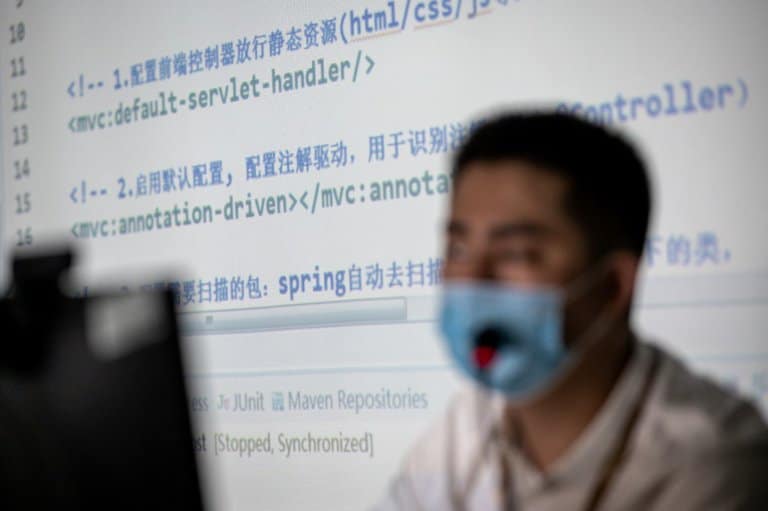
With technology getting more powerful, figuring out how to study better has never been easier.
And one new chatbot at the forefront of generative artificial intelligence could be the top tool in helping us become smarter: ChatGPT.
Imagine the Magic 8 ball but one that can answer more complicated questions. That’s ChatGPT.
The conversational AI chatbot tool developed by OpenAI has been making waves since its launch in November 2022.
ChatGPT can interact with questions in a dialogue format, making it possible for it to answer follow-up questions and even admit its mistakes.
This AI tool is “fed” hundreds of billions of words in the form of books, conversations and web articles based on a model known as the large language model or LLM.
Hence, its ability to produce entire sentences from its “learnings” of the model — making it a powerful tool that anyone can ask to do basically everything, from translation to writing essays.
The catch? Responses are only limited to information until 2021.
Though there have been concerns and backlash about the misuse of the tool, we’ve also seen how when used appropriately, how it can help us improve productivity.
How to study better with ChatGPT: Four ways everyone should try

With powerful tech tools like ChatGPT, figuring out how to study better has never been easier. Source: Nicolas Asfouri/AFP
1. Summarising long articles
Researching for a paper is time-consuming and takes up a lot of energy. Not only do you have to find your sources but you also have to go through them to find your main points.
Finding out how to study better with ChatGPT can help you ease this process.
There’s a hack that allows you to summarise long articles and break down the main points:
- Create an account or log into your account on ChatGPT.
- Write the command “Please summarise the following article into a list of talking points.”
- Copy and paste the link below the above command.
- Hit Enter.
- Your list of pointers will show up on the screen below your chat.
2. Taking meeting minutes
Ever zoned out during a meeting and completely missed out on what was being said?
Or you were too engrossed in the discussion that you forgot to take notes? Or maybe you just don’t like taking notes.
Either way, while meeting recordings are a useful way to recap, who has time to listen to a two-hour recording when you only need five minutes of information?
Use ChatGPT to end this once and for all. All you have to do is transcribe your meeting videos into text scripts or:
- Transcribe your meeting videos into text scripts.
- Copy and paste the text scripts into ChatGPT.
- On top of the text script, write “Summarise the below meeting script to meeting minutes and outline list of action items.”
- ChatGPT will take care of the rest.
3. Brainstorm ideas
Mastering how to study better doesn’t come easy always. Which is why having friends around helps loads.
But if your friends are too busy or don’t know much about your class (like, calculus or mechanical engineering, for example), you can use ChatGPT to bounce ideas with.
Some questions you can ask include:
- “Is [topic] a good dissertation idea?”
- “How can I study more productively?”
- “What are some time management hacks?”
But remember, ChatGPT doesn’t always have the most accurate answers and you shouldn’t rely on it solely to validate your ideas.
4. Make flashcards for studying
Using flashcards, students often find it easier to learn how to study better.
But before you could make flashcards, you have to digest large chunks of information into bite-sized content.
ChatGPT can help you create flashcards for any content. Here’s how can do it:
- Find the content you want to use to build flashcards, then copy and paste them into ChatGPT
- Type “Create flash card for the following content.” above the content you just pasted in the chatbox.
- ChatGPT will create the content for each card for you, all you need to do is to make the cards yourself.
New to programming and don’t know where to start? Check out these free games that’ll teach you how to programme like a pro.
Best alternatives to ChatGPT in 2023
-
ChatSonic
Chatsonic, which is better than ChatGPT, gives up-to-date factual information using Google’s knowledge network for the most recent information on events and topics occurring at that time.
Unlike ChatGPT is limited to information until 2021, ChatSonic isn’t. It is a much more advanced and powerful chatbot that keeps up with current events, giving it an advantage in terms of accuracy and reliability.
What’s more, this free ChatGPT substitute, uses NLP (Natural Language Processing) and machine learning to produce precise summaries and insights on recent events, trends, and conversations.
2. Socratic

Socratic is an app developed by Google for students and teachers. Source: Noah Berger/AFP
Students, if you’re wondering how AI can teach you how to study better, try Socratic.
This app comes directly from Google. Socratic is a powerful studying tool that could help students with their homework. Students and teachers love the app because it’s as easy as using Snapchat or talking to Siri.
Using AI, students can use it to help them answer a math equation or a reaction from chemistry class. How it makes is simple. All you have to do is just scan using the Socratic app and Google will use the AI to get an answer to that question in just a few seconds.
ChatGPT and similar tools are known for writing students’ essays and long-form answers. But with Socratic, stuents won’t get flagged for plagiarism.
3. Chinchilla
Chinchilla is listed as one of the best alternatives to ChatGPT, however it is currently unavailable to public use at time of writing.
It has proven itself to be superior to its competitors in various ways. The most noticeable one being how it provides four times more data with lesser parameters and on average, has a seven percent more accurate results than Gopher — the previous language model launched by the same company, DeepMind.










